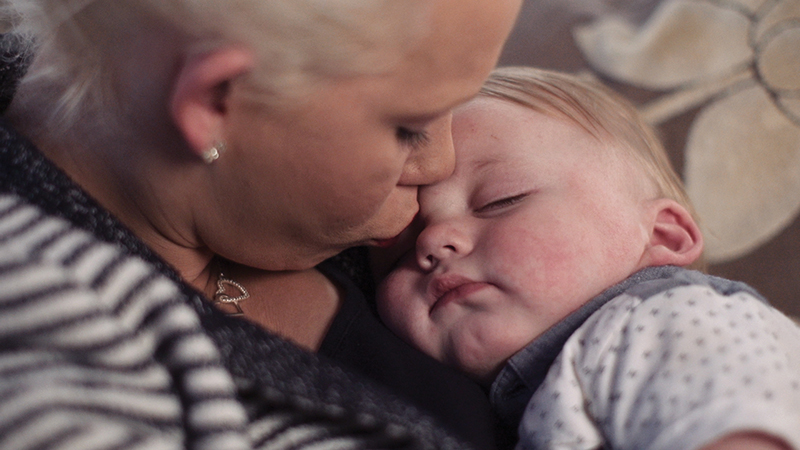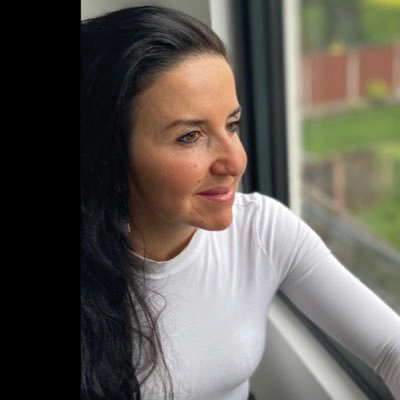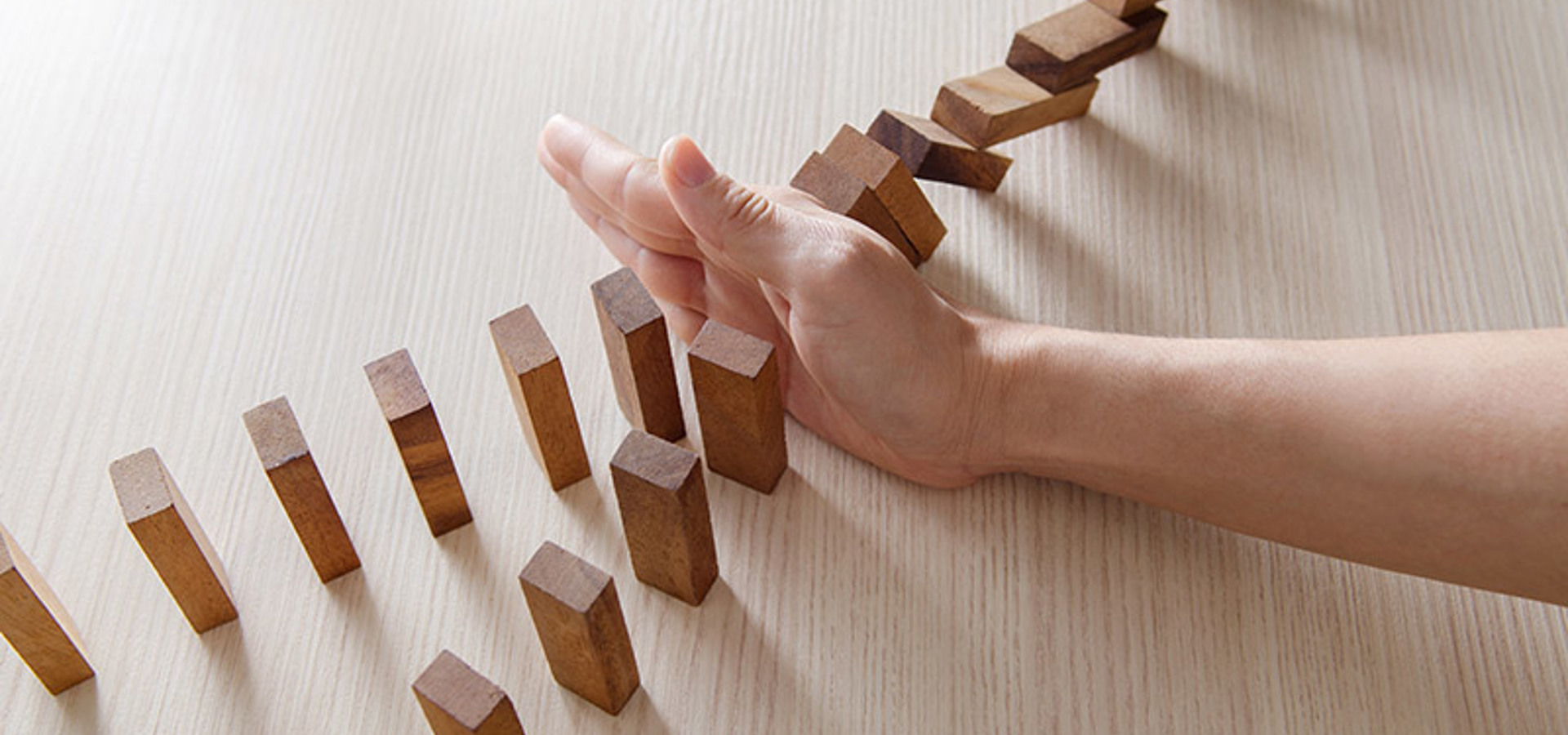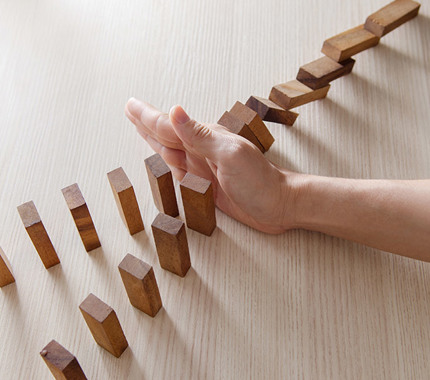Mairi Reid was from a good family; her mother and stepfather were doctors. At the age of 14, she became involved in an abusive relationship. The violence started within months and continued for 17 years.
She told no one. She left school at 16 and had two children by 20. She walked out many times, but always returned. ‘I always thought that if I changed something or did something better, I could make it stop,’ she says.
Years later, she summoned the courage to apply for an access course to medicine and won a place at medical school. Even then, she dropped out for 12 months and had to re-sit her first year because things were so difficult at home.
I felt I wasn’t the type of person that this should happen toDr Reid
It was only when she graduated and got her first job that she felt strong enough to end the relationship for good – and start talking about what had happened.
‘The reason I felt I couldn’t tell anyone was not only fear about what would happen if I did, but also I was embarrassed. I felt I wasn’t the type of person that this should happen to. But it doesn’t just happen in the families we might expect it to.’
Dr Reid wants to start a deeper conversation within her profession about domestic abuse. Stereotypes around who it affects are preventing some people from accessing help – and condemning others to be written off as lost causes.
Domestic violence and abuse is startlingly pervasive: 1.6 million women and 757,000 men experienced domestic abuse in the year leading up to COVID lockdowns, according to the Crime Survey for England and Wales 2020. Children under 16 are not included in these figures.
Then in the 12 months that followed, calls and contacts logged on Refuge’s National Domestic Abuse Helpline rose by 61 per cent, as lockdowns turned already tense households into pressure cookers.
Long-term consequences
 REID: Felt forced to keep silent about an abusive relationship
REID: Felt forced to keep silent about an abusive relationship
Research shows that ACEs (adverse childhood experiences), which include suffering or witnessing domestic violence, can lead to poor outcomes of every conceivable type: from heart disease to relationship difficulties, from diabetes to depression.
Abuse can cast a long shadow, throughout people’s lives and down the generations. Dr Reid and her older children ‘have not escaped unscathed’. She still suffers flashbacks, anxiety, low self-esteem.
But she’s now a GP on Merseyside and happily remarried. Dr Reid believes she survived because of her mum – ‘a very key reason why I am where I am today’ – and the support of her then GP.
Though she said little about her situation, both women sensed her need. ‘I would never tell the full story but my GP knew some of it. She made time for me, recommended books, made me realise I could get somewhere with my life and get out.
She always was my GP, but there was something beyond professional support that wasn’t judging.’ What made all the difference for Dr Reid – and a common denominator linking people who manage to overcome ACEs, according to research – were these positive, supportive relationships, ‘someone who’s always there for you’, as she puts it.
She’s proof that ACEs need not be a life sentence. Indeed, she insists that cycles can be broken, with the right support, at the right time.
Building positive relationships
Dr Reid is a fierce advocate of a pioneering service taking root in a number of boroughs across Merseyside, a partnership between Mersey Care NHS Foundation Trust and the local authorities.
The basic aim of BABS, the Building Attachment and Bonds Service, is to help parents with often high numbers of ACEs bond with their babies, by separating past from present struggles. The wider goal is to break destructive cycles by building positive relationships – both between parent and child, and between vulnerable parents and health and social care services, and the wider system.
Seventy-five per cent of BABS families are also supported by children’s social care services. Statistically and stereotypically, many of these families are at higher risk of losing their babies into care. The number of newborn babies being taken into care has more than doubled over the past 10 years.
But BABS founder, consultant clinical psychologist Lisa Marsland Hall, is adamant that parents should not be ‘judged on past cycles’. She believes the first ‘1,001 critical days’ of a child’s life (including pregnancy) offer parents a unique ‘window of opportunity’ to make changes and rewrite the past.
The focus is on [helping] parents to banish their “ghosts in the nursery”BABS
‘You’ll never be more vulnerable than when you have a baby: all the stuff you’ve buried for years resurfaces,’ says Dr Marsland Hall.
‘But a baby also brings new possibilities, hope, feelings of new beginnings. Most new parents, even vulnerable parents, are motivated to change.’ Key to BABS’ success is its multidisciplinary team, from psychologists and therapists to specialist health visitors and peer-support workers.
The service is based in family hubs and children’s centres, not mental health departments. BABS’ focus is on relationships, encouragement and praise to help parents banish their ‘ghosts in the nursery’.
 STRONG BONDS: BABS ‘safeguards’ parent-child relationships (credit: BABS)
STRONG BONDS: BABS ‘safeguards’ parent-child relationships (credit: BABS)
And the early signs are that change is happening. A blind study by the University of Liverpool found that in 75 per cent of BABS families, the infants of parents with very high ACEs were meeting their developmental milestones two years on.
Another BABS study, published last year by Edge Hill University, found strong parent-infant bonds were linked to improved parental mental health, secure attachments and a reduction in vulnerability and risk factors.
‘We need to understand that helping vulnerable families break ACEs involves engaging with these families, going above and beyond in our work, removing the stigma, blame and shame which society puts on them,’ says Dr Marsland Hall.
‘We can’t support families to build good bonds with their babies if we don’t build good bonds with the parents. We as professionals are so focused on safeguarding risk that at times we lose sight of safeguarding the most important relationships. Parents who’ve had the worst start in life can still make great parents, with the right support being offered at the right time.’
Recognising the signs
 MARSLAND HALL: ‘We can’t support families to build good bonds with their babies if we don’t build good bonds with the parents’
MARSLAND HALL: ‘We can’t support families to build good bonds with their babies if we don’t build good bonds with the parents’
Dr Marsland Hall and Dr Reid recognise doctors can play a role as advocates for more services such as BABS, which sadly are still relatively rare.
A motion passed at the BMA’s 2022 annual representative meeting, backed by Dr Reid, called for more multi-agency collaborations such as BABS to support children and adults with ACEs.
Doctors are also important gatekeepers who can refer patients to services such as BABS, as Dr Reid herself has done. And, with specialist parent-infant mental health training such as that Dr Marsland Hall offers, clinicians can support vulnerable families directly to build bonds and break cycles.
But first, crucially, doctors need to be able to recognise and respond to the signs of domestic abuse. They need not only training but an awareness of their own unconscious bias, says Dr Reid. She believes all specialties should have annual safeguarding training so they ask the right questions, and ask those questions of everyone.
They also need to learn to read between the hints and ‘the stories that don’t add up’. ‘What’s really damaging to a patient is if they share something – and even just alluding to abuse is huge for them – and you don’t pick up on that cue,’ says Dr Reid.
It is difficult as a GP when you’ve only got 10 minutes per patient, but I always try to fit these patients in and take their callsDr Reid
Most importantly, doctors need to be non-judgemental, whatever people’s background or choices – just as Dr Reid’s own GP was. Twenty-five per cent of BABS’ parents ‘can be anyone and everyone, including millionaires’.
‘I think people look at relationships like mine and think, “Why don’t you just leave?”’ says Dr Reid. ‘But it’s complex. I was very young, I had young children, and I didn’t know how I’d cope on my own.
‘It’s very hard to break free. You may feel it’s your fault, or you can change the situation, or you don’t want to abandon that person. Or you may fear they’ll harm themselves, or kill you, or keep the children. There’s always a reason to stay.
‘It is difficult as a GP when you’ve only got 10 minutes per patient, but I always try to fit these patients in and take their calls. I don’t talk about my background; I don’t feel that’s appropriate. But I do everything I can to give them support and be their cheerleader.
‘Everybody has vulnerable complex patients and it’s easy to get to a point where you don’t feel you can help them any more. But we have to keep trying to believe in them, so they believe in themselves.’


